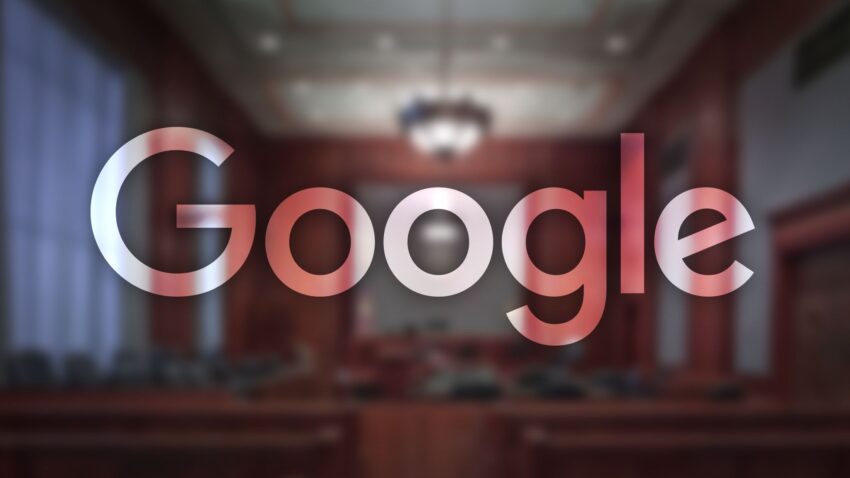
us appeals court says google can t A U.S. appeals court has ruled against Google, denying its request to pause an order that mandates significant changes to the Google Play Store in the ongoing legal battle with Epic Games.
us appeals court says google can t
Background of the Case
The legal conflict between Epic Games and Google began in August 2020 when Epic launched a direct payment system in its popular game, Fortnite, circumventing Google’s standard payment processing system. This move prompted Google to remove Fortnite from the Play Store, leading Epic to file a lawsuit against the tech giant. The lawsuit claimed that Google’s practices constituted anti-competitive behavior, stifling competition and innovation in the mobile app market.
Epic Games has long argued that the Google Play Store operates as a monopoly, limiting developers’ ability to reach consumers and forcing them to adhere to Google’s payment system, which charges a commission of up to 30% on in-app purchases. The company contended that this model not only harms developers but also ultimately affects consumers by limiting choices and inflating prices.
The Appeals Court Ruling
On October 3, 2023, the U.S. Court of Appeals for the Ninth Circuit issued a ruling that upheld a lower court’s decision requiring Google to implement changes to its app distribution practices. The court denied Google’s request to pause the order while it appeals the ruling, which means that Google must comply with the directive to allow users to download competing app stores and make its catalog available to competitors.
This ruling is a significant victory for Epic Games and could have far-reaching implications for the mobile app ecosystem. By allowing alternative app stores, the court aims to foster a more competitive environment, potentially leading to lower prices and more choices for consumers.
Implications for Google
The ruling poses several challenges for Google. First, it undermines the company’s control over the Play Store, which has been a cornerstone of its mobile strategy. The requirement to permit alternative app stores could lead to a fragmentation of the app ecosystem, complicating the user experience and potentially exposing users to security risks associated with less regulated app sources.
Moreover, the decision could set a precedent for other legal challenges against Google and similar tech giants. If Epic Games successfully implements its vision of a more open app marketplace, it may encourage other developers to pursue similar legal avenues, further eroding Google’s dominance in the mobile app market.
Reactions from Stakeholders
The ruling has elicited a variety of reactions from stakeholders across the tech industry. Epic Games celebrated the decision as a win for developers and consumers alike. In a statement, the company emphasized the importance of fostering competition in the app marketplace, asserting that the ruling would help level the playing field for developers who have been constrained by Google’s policies.
Conversely, Google expressed disappointment with the ruling, arguing that the changes mandated by the court could lead to a less secure and less user-friendly experience for Android users. The company has maintained that its policies are designed to protect users and ensure a high-quality app ecosystem.
Broader Context of Antitrust Actions Against Tech Giants
This ruling is part of a broader trend of increasing scrutiny and legal challenges against major tech companies, particularly in the realm of antitrust law. In recent years, regulators and lawmakers have intensified their focus on the practices of companies like Google, Apple, and Amazon, questioning whether their market dominance stifles competition and harms consumers.
In the case of Google, the company has faced multiple lawsuits and investigations related to its advertising practices, search algorithms, and app distribution policies. The outcome of these legal battles could significantly reshape the landscape of the tech industry, potentially leading to more stringent regulations and a rethinking of how these companies operate.
Potential Outcomes of the Ruling
The court’s decision to deny Google’s request for a pause could lead to several potential outcomes:
- Implementation of Alternative App Stores: Google may be required to allow alternative app stores to operate on its platform, which could lead to increased competition and innovation in app distribution.
- Changes in Payment Processing: Developers may gain the ability to use their own payment systems, reducing reliance on Google’s payment processing and potentially lowering costs for consumers.
- Increased Security Risks: The introduction of alternative app stores could lead to concerns about security and the quality of apps available to users, as these stores may not adhere to the same standards as the Google Play Store.
Future Legal Battles
The ruling is likely to embolden other developers and companies to challenge Google’s practices. As the tech industry continues to evolve, the legal landscape surrounding app distribution and competition will also change. Other developers may see this as an opportunity to advocate for their rights and push back against what they perceive as monopolistic practices.
Moreover, the outcome of this case could influence ongoing discussions about regulatory reforms in the tech industry. Lawmakers may take cues from the ruling as they consider new legislation aimed at promoting competition and protecting consumers in the digital marketplace.
Conclusion
The U.S. appeals court’s decision to deny Google’s request to pause the order requiring changes to the Google Play Store marks a pivotal moment in the ongoing legal battle between Epic Games and Google. As the case unfolds, it will be crucial to monitor the implications for developers, consumers, and the broader tech industry. The ruling not only affects the immediate parties involved but also sets the stage for future challenges to the practices of major tech companies.
As the legal landscape continues to evolve, stakeholders will need to navigate the complexities of competition, innovation, and consumer protection in an increasingly digital world.
Source: Original report
Was this helpful?
Last Modified: September 13, 2025 at 6:37 am
0 views














